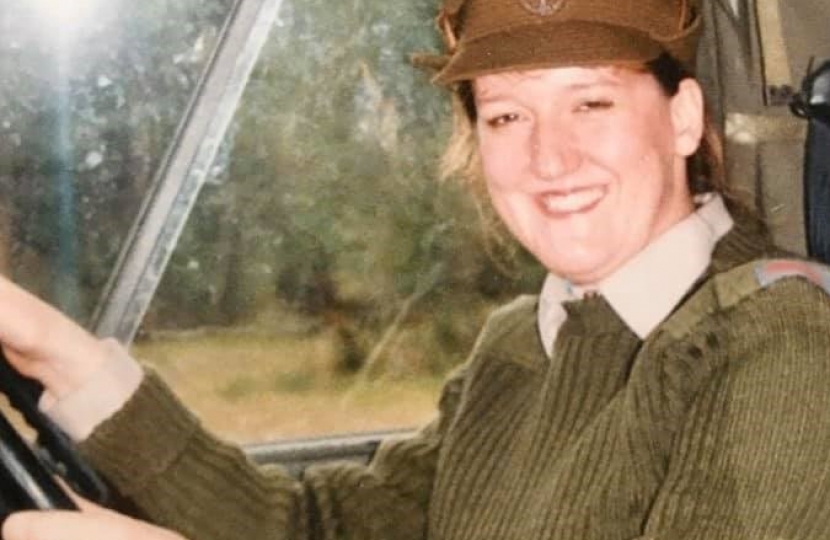
As we approach Remembrance Sunday, our minds naturally focus on honouring those men and women who have given their lives protecting and defending this great country of ours. It is a day normally marked by ceremonies at local war memorials in towns and villages throughout Derbyshire Dales. Sadly all of this year's ceremonies will be severely curtailed as a result of the Covid-19 pandemic. It is a sad reality that many of those most affected by this cruel virus are the generation that lived through the Second World War and its aftermath. As a Reservist myself back in 1995, I helped to steward some of these veterans during the 50th anniversary celebrations of VE Day. Most are no longer with us. The death of Dame Vera Lynn early this year was also very sad. In one of her last public statements, as we celebrated VE Day in May, Dame Vera asked us to "all remember the brave boys and what they sacrificed for us . . . they left their families and homes to fight for our freedom and many lost their lives trying to protect us and our liberties".
The Pandemic has sadly curtailed not only our Remembrance Day ceremonies but has also very seriously affected the annual Poppy Appeal which raises badly needed funds for our veterans. Many of the volunteers who usually distribute more than 40 million poppies annually are unable to assist with or carry out face to face collections this year, and many people have been unable to leave their homes as they normally would to buy a poppy. The Royal British Legion have suggested alternative ways of supporting the Appeal such as donating online, donating for poppies to be sent through the post to neighbours and local community and displaying a poppy in your window.
We have been doing our bit in Parliament. In October the Government introduced a new Veterans Railcard, which will save veterans 1/3 off most rail fares. This new Railcard will help an extra 830,000 people benefit from discounted rail travel. The Railcard’s design utilises the colours featured on the Veterans flag which represent the three-armed forces: army, navy and air force. Captain Sir Tom Moore – the NHS charity fund-raising hero – became the first veteran to receive one of the railcards.
We must also remember and help those who have also been affected while serving in our armed forces. This is what we have been doing in Parliament. I am very privileged to have been selected to sit on the Overseas Operations (Service Personnel and Veterans) Bill Committee, which is made up of 17 members, led by Veteran’s Minister Johnny Mercer, himself a distinguished soldier. This hugely important piece of legislation addresses the issue of vexatious claims made against our service personnel past and present, and makes the first substantial amendments to the Human Rights Act in primary legislation by limiting the time in which claims can be brought. It will ensure that serving and former armed forces personnel will have more legal protection from the prospect of questionable claims and investigations ― despite the vast majority having acted in accordance with the rule of law and often at great personal risk.
I recognise the unique burden and pressures felt by our military personnel engaged in active service overseas and am determined to assist military personnel to whom a vast debt of gratitude is owed. For the past several weeks, together with colleagues, I heard evidence and then scrutinised the proposed legislation line by line. The Bill is now back from the House of Lords and it will have its final reading this week. I was very proud to have been part of this vital work.

